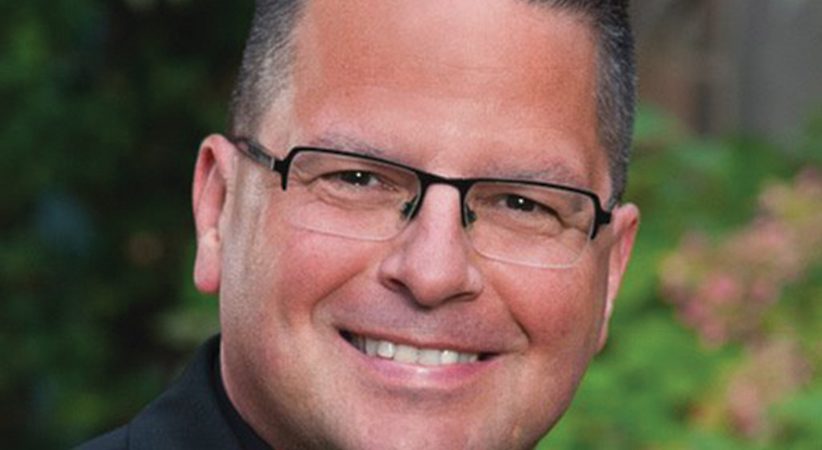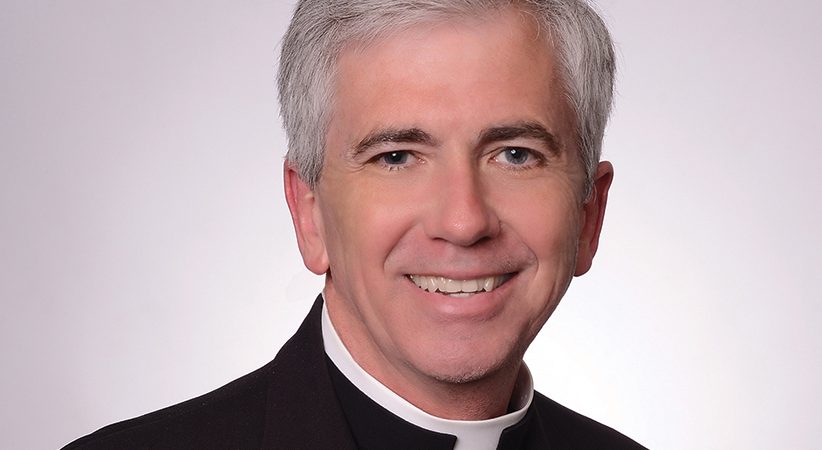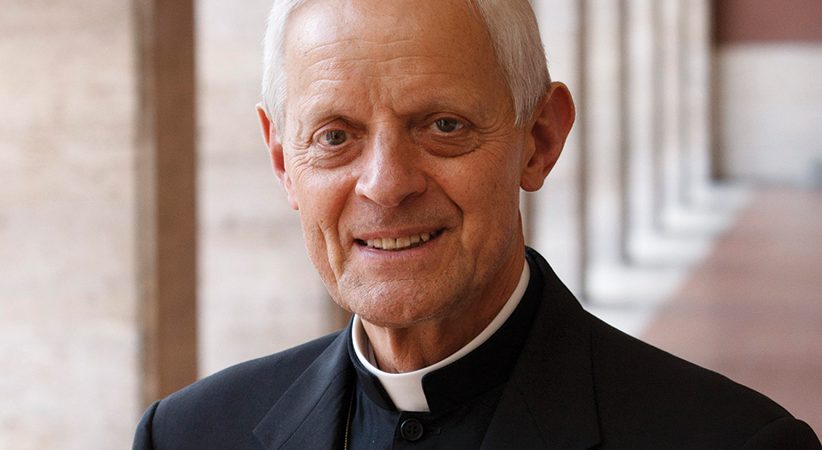‘Your Will Be Done’
Focus on surrendering ourselves to God this Lent
Father David J. Bonnar Comments Off on ‘Your Will Be Done’
One of the misconceptions about life is that when we receive our degree or diploma there will be no more classes, studying or exams. And yet we all come to see that the classroom experience never really ends. There are always more lessons to be learned, subject matter to be studied and tests to be taken.
The test we face every day in our humanness involves our willpower. How strong is our will when it comes to doing what needs to be done? The runner encounters this test when he sets out to run five miles but hits the wall.
The disciple in this Lenten season comes face to face with this test of willpower when he decides to fast from something, only to be tempted repeatedly. Why is it that we always want what we do not have? The test isn’t just a matter of fasting; it also can center on praying and giving alms. We desire to pray more and give more of ourselves to those in need, but we can become so easily distracted and fail.
Perhaps the biggest test on willpower involves the battle between our will and God’s will. Are we strong enough to surrender our will to God’s will? Can we make Jesus’ words our words? “Father, if you are willing, take this cup away from me; still, not my will but yours be done” (Lk 22:42).
In giving to his disciples the Lord’s Prayer, Jesus offered a formula inside of which there is an expectation to surrender: “Your will be done” (Mt 6:10). The life of a disciple is meant to be one lived in total surrender to God’s will. Such a lifestyle is challenging, especially when it conflicts with our own will. Jesus resigns himself to the Father’s will even to the point of death on a cross.
Every day at holy Mass and at morning and evening prayer, we utter the prayer, “Your will be done.” It is easy to say, but ever so hard to do. The Lenten season is a time for us to deepen our relationship with God by becoming more open and amenable to his will. To surrender to God’s will is the great act of discipleship. Such a surrender can become a special Lenten project. To let go of one’s will is the ultimate act of self-denial. I believe this is precisely what Jesus has in mind when he says, “Whoever wishes to come after me must deny himself, take up his cross, and follow me” (Mt 16:24).
One of my favorite lines in the Liturgy of the Hours comes from Psalm 119:36. There are many translations for it, but the one that speaks to my heart is from the breviary: “Bend my heart according to your will and not to love of gain.” In many ways our hearts are to be flexible like Gumby, the green toy figure with whom we all grew up.
The question we might want to bring to our prayer this Lent is, Lord, what is your will for me? This is a huge question that demands not only courage to embrace but time to unpack. Responding to God’s divine will is the ultimate act of obedience. Implicit within this pursuit is the need for attentive listening and deep trust.
|
Like what you’re reading? Subscribe now.
|
As we entertain this question, Jesus asks us to ponder yet another poignant question. This question, which was posed to Simon Peter by Jesus, is presented to us: “Do you love me?” (Jn 21:17). It is interesting that in this exchange Jesus offers a bold prediction about the future. He says, “Amen, amen, I say to you, when you were younger, you used to dress yourself and go where you wanted; but when you grow old, you will stretch out your hands, and someone else will dress you and lead you where you do not want to go” (Jn 21:18). Do we love Jesus enough to go where we do not want to go?
FATHER DAVID J. BONNAR, editor of The Priest, is a pastor of 14 years in the Diocese of Pittsburgh, where he has served in numerous roles. To share your thoughts on this column or any others, follow The Priest on Twitter @PriestMagazine and like us on Facebook.



